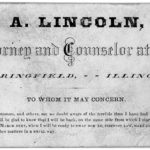
Wars are expensive, brutal and finally useless, as long as human beings will kill others in an argument over territory or sovereignty. The longer they last the worse, it seems, the agreements invented in the ‘peace treaties’ are. This is the first of a series of analyses of famous Congresses or Peace Treaties which left a decidedly nasty taste in the mouth on both sides.
The Congress of Vienna lasted from October 1814 to June 1815. It was the meeting of nations supposed to provide a peace settlement after the Napoleonic Wars had ended – or everybody but one thought they had ended.
Important decisions were taken by the ‘victors’ Britain, Russia, Austria and Prussia (after around a million violent deaths). France’s representatives were allowed to attend. Napoleon Bonaparte’s wars had changed the map of Europe extensively: he had reduced the number of German states to 39 from 230. Much of Germany and Italy had been ‘annexed’ by France. The Austrian Netherlands, later Belgium and Holland had been occupied. France was forced to give up nearly all her conquests at Vienna, but nothing was done about those vanished one hundred and ninety-one German states. The 39 were turned into a bund or German federation under the control of Austria – but it had no military force or proper authority – because each state retained control of its own affairs.
It was plain that Britain saw Austria as the fulcrum of settlement in Central Europe; she was expected to prevent Russia from expanding, and keep France out of Italy and Germany. But Austria did not really have the resources to fulfil this obligation. She was however content to give up the Austrian Netherlands which were after all far away from her other territories. In return she got Venetia in Italy and the Dalmatian Coast. Parma, Modena and Tuscany were to be ruled by Austria, the Pope was returned to the Papal States, and the Bourbon family in Naples and Sicily. Piedmont (north Italy) received the Genoese Republic, so that she could (with luck) be a fairly strong buffer between France and the Hapsburg Empire. In addition, Austria’s role was to be a policeman in Italy and stop change there – something she was prepared to do.
Russia’s overpowering wish at this Congress was to get hold of Poland, including those parts which had gone to Prussia and Austria in the Partitions of 1793 and 1795. She agreed to let Prussia have Saxony. Note that the inhabitants of these movements on the chess board had no say. Austrian politicians however protested firmly against this last move because Russia would dominate Eastern Europe, and Prussia would get a commanding position in north Germany, and thus be enabled to challenge Austria’s leadership of the Bund.
Lord Castlereagh was in Vienna representing Britain, and he was on Austria’s side, as was M. Talleyrand who could see a chance of dividing the alliance against France which might end the isolation of France. In fact Britain, Austria and France made a secret pact in January 1815 which was prepared even for more war. Russia learned from spies about this secret agreement, and was prepared to compromise. Prussia would get but two-fifths of Saxony, Russia was to acquire most but not all of Poland – and poor Poland would have to be satisfied with becoming a separate monarchy under the control of the Tsar of Russia! But the latter was also to get Finland (from Sweden) and Bessarabia from Turkey. By this time it was clear that the country which would do best out of the Congress of Vienna was Prussia. That is why she got the Rhineland, because Britain wanted a strong power in western Germany to prevent any possible French encroachment there. Prussia also got a part of richly industrial Saxony and Swedish Pomerania on the Baltic coast (thus ending the Swedish Empire incidentally).
Britain was sensibly not interested in gaining territory in Europe, but very interested in naval bases, from which she could continue to control the seas. She got Malta, the Ionians and Heligoland, Ceylon and the Cape of Good Hope, taken from the Dutch during the recent wars. Thus invaluable bases were secured by Britain, remembering the importance of the route to India. Unbelievably, Britain also supported the ‘transfer’ of Norway from Denmark to Sweden, which meant that no single power controlled the entrance to the Baltic. Castlereagh’s wish for Britain was to strengthen the states on France’s borders, so that they might be firm enough to resist any French aggression. It was obvious that most of Europe had come to understand the French. Britain succeeded, with a United Kingdom of the Netherlands sited directly to the north of France. Prussia was in the Rhineland (to the north-east), and there was the Swiss Confederation, whose integrity was guaranteed by the Great Powers. It must not be forgotten that from March to 26 June the supreme irony occurred. While the great statesmen were carving up a future Europe, Napoleon Bonaparte escaped from the island to which he had been exiled after his abdication as Emperor of the French in 1814. The War of the Hundred Days actually took place during the conference and must have influenced it. On 18 June the Battle of Waterloo settled Bonaparte’s hash. Louis XVIII was restored for the second time. The Duke of Wellington thought ‘it was a damned close thing’; Blucher, whose contribution to Waterloo had been crucial, retired from fighting at the age of 73, and the Congress was finally, and thankfully signed, though very few people were happy with it, as indeed they were not after quite a few other peace conferences which we will examine in the next few posts.









Leave A Comment